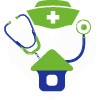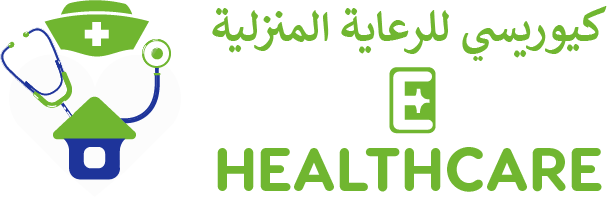Archives

In today’s fast-paced and demanding world, our health often takes a backseat in the pursuit of success and achievement. However, taking some time off for our well-being is not a luxury; it’s a necessity. Regular health checks play a pivotal role in maintaining our physical and mental health, ensuring that we can continue to lead fulfilling lives. In this blog, we will delve into the various benefits of prioritizing regular health checks, explore essential health checks we should undergo periodically, and introduce the convenience and advantages of healthcare services at home.
The Significance of Regular Health Checks
Early Detection and Prevention:
Regular health checks enable early detection of potential health issues, providing an opportunity for timely intervention. Catching health problems in their initial stages can significantly improve treatment outcomes and even prevent certain conditions from progressing.Improved Quality of Life:
By staying on top of your health through regular check-ups, you can proactively address any concerns and make lifestyle adjustments as necessary. This, in turn, leads to an improved overall quality of life, increased energy levels, and enhanced productivity in your daily activities.Reduced Healthcare Costs:
Prevention is often more cost-effective than treatment. Regular health checks can help identify health risks early on, preventing the development of chronic illnesses that may require extensive and expensive medical interventions.Peace of Mind:
Knowing that you are taking steps to monitor and safeguard your health provides a sense of reassurance and peace of mind. It allows you to focus on other aspects of life with reduced anxiety about potential health issues.Health Education and Awareness:
Health check-ups provide an opportunity for healthcare professionals to educate individuals about their specific health needs and the importance of leading a healthy lifestyle. This knowledge empowers people to make informed decisions about their well-being.
Essential Health Checks to Prioritize
Comprehensive Physical Examination:
A comprehensive physical examination involves a healthcare professional assessing various aspects of your health, such as measuring your height, weight, and body mass index (BMI), checking your blood pressure, listening to your heart and lungs, examining your skin, and evaluating your overall health status. This evaluation helps identify any potential health issues and forms a baseline for future comparisons.Blood Pressure Monitoring:
Regular blood pressure checks are crucial in monitoring the force of blood against the walls of your arteries. High blood pressure (hypertension) can lead to serious health problems like heart disease, stroke, and kidney damage. Monitoring blood pressure helps detect any fluctuations early, allowing for prompt intervention and lifestyle changes.Cholesterol Levels Assessment:
Cholesterol is a type of fat in your blood that plays a vital role in various bodily functions. However, high levels of cholesterol can lead to the buildup of plaque in arteries, increasing the risk of heart disease. Regular cholesterol testing helps identify abnormal levels, enabling appropriate dietary adjustments and medications if necessary.Blood Glucose Testing:
Blood glucose testing measures the amount of sugar (glucose) in your blood. It is essential for monitoring diabetes or pre-diabetes. Consistent monitoring helps manage blood sugar levels, preventing complications like nerve damage, eye problems, and kidney disease.Body Mass Index (BMI) Measurement:
BMI is a numerical value calculated from your height and weight and is used to determine if you are within a healthy weight range. Maintaining a healthy BMI reduces the risk of obesity-related health issues like diabetes, heart disease, and joint problems.Vision and Hearing Tests:
Regular vision and hearing assessments are vital for detecting any deterioration in these senses. Early detection allows for timely interventions like prescription glasses or hearing aids, improving overall quality of life.Cancer Screenings:
Screenings for common types of cancers, such as breast, cervical, prostate, and colon cancers, are crucial for early detection and treatment. Regular screenings can increase the chances of successful outcomes and improve survival rates.Bone Density Testing:
Bone density testing, typically done through dual-energy X-ray absorptiometry (DEXA), is essential, especially for women after menopause. It helps detect osteoporosis, a condition that weakens bones, making them more susceptible to fractures.Immunizations:
Staying up-to-date with vaccinations is vital for maintaining immunity against various infectious diseases. Vaccines protect not only individuals but also communities through herd immunity.Mental Health Evaluation:
Mental health is equally important as physical health. Regular mental health evaluations can aid in the early detection and management of conditions like depression, anxiety, or other mood disorders, improving overall emotional well-being.
The Convenience of Healthcare Services at Home
In recent times, the healthcare landscape has evolved to offer more accessible and patient-centric options. Home healthcare services have emerged as a convenient solution for busy individuals or those with mobility challenges. These services bring healthcare to your doorstep, making it easier to prioritize regular health checks.
Convenience and Time-saving:
Home healthcare services eliminate the need to travel to medical facilities, saving time and effort. You can schedule appointments at your convenience, reducing disruptions to your daily routine.Comfort and Familiarity:
Being in the comfort of your own home can reduce stress and anxiety often associated with medical settings, leading to a more relaxed and accurate health assessment.Personalized Care:
Home healthcare professionals provide personalized attention, addressing individual health concerns and offering tailored advice for lifestyle improvements.Regular Monitoring:
For individuals with chronic conditions, home healthcare facilitates continuous monitoring, ensuring any changes in health are promptly addressed.Increased Access:
Home healthcare services bridge the gap for those living in remote areas or with limited access to medical facilities, enhancing overall healthcare accessibility.
Investing time in regular health checks is a priceless investment in your well-being. The benefits of early detection, improved quality of life, and reduced healthcare costs far outweigh the effort involved. By prioritizing essential health checks and exploring the convenience of home healthcare services, you can proactively safeguard your health and enjoy a fulfilling and healthy life. Remember, taking care of yourself today means a healthier and happier you tomorrow.
Facebook
Twitter
LinkedIn
Pinterest
Other Services
Thyroid test at home
Error: Contact form not found.
You might also like
The Diagnostic Value of CT Scans
Lab test at Home Food Intolerance Doctor at Home Physio
August 17, 2024
The Vital Role of Vaccinations: Essential for All Ages
Lab test at Home Food Intolerance Doctor at Home Physio
August 17, 2024
Breastfeeding Awareness Week: Simple Tips for New Moms
Lab test at Home Food Intolerance Doctor at Home Physio
August 3, 2024
July 27, 2024
July 20, 2024

